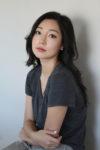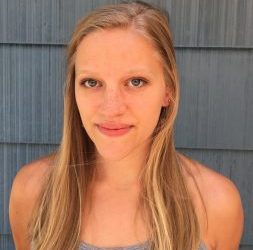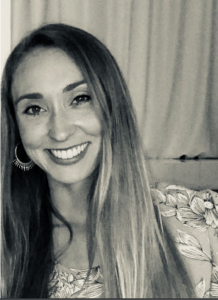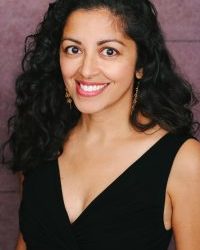10.09.2020
Results of the 2020 Summer Prize in Fiction and Poetry
Winner of the 2020 Fiction Prize selected by Lucy Tan:
“The Hampton Roads Bridge Tunnel” by Leah Fretwell

Lucy Tan says, “’The Hampton Roads Bridge Tunnel,’ a story about the frailty of all we hold near in the face of death–whether it be religion, blood connection, or the stories we grow up telling ourselves. Here, horror is mixed with strange tenderness and humor, and the story’s fractured form captures truth about the human spirit and the way we grieve. This is the work of a writer with incredible heart and surprising range.”
Leah Fretwell’s fiction has appeared in Inscape and online at the Southern Humanities Review.
Runner-Up of the 2020 Fiction Prize selected by Lucy Tan:
“A Few Perfect Innings” by Ryan Lackey

Lucy Tan says, “‘A Few Perfect Innings’ is an inventive and powerful story about rage, obsession, and inheritance. I was drawn in by the intimacy and specificity with which this author crafts characters and their psychologies. I also admired the way suspense builds beneath carefully managed voice and tone.”
Ryan Lackey is a PhD student at the University of California, Berkeley. His writing has appeared with Literary Hub, Los Angeles Review of Books, Public Books, Chicago Review, and elsewhere. He tweets @rlackey15.
Finalists:
“The Blackberry Flu” by Hailey Foglio
“Atargatis” by Banah Ghadbian
“Color Theory for the Currents at Night” by Claire Oleson
“Clean Slate” by Tara Ramirez
“Water Day” by Manisha Sharma
“The Lightning Jar” by Emily Woodworth
Winner of the 2020 Poetry Prize selected by E.J. Koh:
“For My Own 34th Birthday” by Maria Picone

E.J. Koh says, “‘For my own 34th birthday’ is a disentanglement of the politics of belonging and the everyday trauma of un-belonging. ‘No in-between,’ as in, the unbearable, generational suffering that divides women and countries and language. This winning poem translates the untranslatable; and it refuses any one answer.”
Maria S. Picone (she/her/hers) writes, paints, and teaches from her home in South Carolina. Her publications include flash fiction, CNF, poetry, translation, visual art, and hybrid work. Her writing has been published in Kissing Dynamite, Emerge Literary Journal, and *82 Review, among others. She has work forthcoming in Whale Road Review, Parentheses Journal, Moonchild Magazine, and others. A Korean adoptee, Maria often explores themes of identity, exile, and social issues facing Asian Americans. She received an MFA in fiction from Goddard College and holds degrees in philosophy and political science. You can find more on her website, mariaspicone.com, or Twitter @mspicone.
Runner-Up of the 2020 Poetry Prize selected by E.J. Koh:
“The Fire Consumes, The Fire Produces” by Caroline Chavatel

E.J. Koh says, “The Fire Consumes, The Fire Produces” begins: “I dig my own grave daily.” The ‘I’ is a mythology that guides the reader closer to themselves. There is magic here in the simultaneity of opposites, the reversal of perceived differences, and the ecosystem of everyday things and their inner lives.
Caroline Chavatel is the author of White Noises (Greentower Press, 2019), which won The Laurel Review’s 2018 Midwest Chapbook Contest. Her work has appeared in Sixth Finch, Foundry, Poetry Northwest, AGNI, and Gulf Coast, among others. She is an editor at Madhouse Press and co-founding editor of The Shore. She is currently a PhD student at Georgia State University where she teaches and is Poetry Editor of New South.
Finalists:
“Consume (Mad Study IV)” by Rob Colgate
“Mother and Son as Oyakodon” by Michael Frazier
“Second Movement: The Boy y El Hombre Que Se Comió El Relámpago” by Saúl Hernández
“Rocket Ships” by Yuki Jackson
“River” by Cindy Juyoung Ok
“An American Self-Destructs into the American” by Jenifer Sang Eun Park
“Inlet” by Ilari Pass
“How to Resurrect a Chicken” by Danni Quintos
* * *
Thank you all again for your wonderful work. Be sure to keep an eye out for our Winter Issue 44.2 to read these winning works!
*Banner art: from Gabriel Silva’s “Gold 1”, which appears in Issue 42.2 of Cream City Review.
07.03.2020
Interview with 2020 Poetry Prize Judge E.J. Koh
This year’s Cream City Review Summer Prize in Poetry will be judged by the poet and memoirist E.J. Koh. In this micro-interview conducted by Editor-in-Chief, Su Cho, E.J. discusses moments of surprise during her writing process, what makes a poem memorable, and what she’s working on now. Read on for the full interview.

E.J. Koh is the author of the poetry collection A Lesser Love (Louisiana State University Press, 2017), winner of the Pleiades Editors Prize for Poetry and the memoir The Magical Language of Others (Tin House Books, 2020). You can learn more at www.thisisejkoh.com.
*
1. I’m so glad I got to see you read from your memoir, The Magical Language of Others, at Boswell Books in Milwaukee this year! I couldn’t help but notice that you opened your talk with a very generous explanation of 잘 부탁합니다 (jal butak hapnida) and how your poetry collection A Lesser Love opens with “Showtime,” which also summons this phrase of goodwill and trust. You say, “This translates into, Please be kind to me / but it suggests: // Even if I shame myself, / please be kind to me. This might be a selfish question, but what made you choose the formal phrasing instead of the informal?
My spoken Korean tends to be formal. Korean was the language for home, church, and times with my grandmother, who brought me along on visits with her friends in Milpitas, California. My mother would laugh because I sometimes use phrases that are now out-of-style or might date me to the time when my parents immigrated to the States. My Korean is, in some ways, trapped in time.
2. I’m always taken by the voices in your poems—as though their footsteps walk with me through the book. There’s such an alluring inhabitance of the places we explore. I feel like everything is watching, alive, and demands urgency. Could you talk more about voice, and how you cultivate it in your poetry and/or prose? Is there a difference for you? I’m particularly struck by the last poem “Alki the Town of Dreams” and the couplet “As casual as a bird sailing into its fullest wingspan / towards me, as if he’d been there since the beginning.” Can you talk about this presence in the book? Was it something consciously woven into the book or did it come naturally?
I read the poem aloud as I’m writing it. If you sit by me, you can hear me say each word. The practice of reading out loud has been with me since the beginning. The voice a reader hears is the voice I’m speaking through. If you asked me to write quietly, poetry or prose, it would be difficult. I imagined my work to be read the same way—to be spoken into a room, connecting acts of writing and reading intimately.
3. It was really nice to see how the themes from A Lesser Love resonated through your memoir, The Magical Language of Others. The complexities of belonging, maintaining relationships, and grappling with the tethers of life were comforting and eye-opening for me. So much of it is navigated through language, translation, and interpretation. You so generously outline it for the reader in the memoir—were there moments you felt protective of your knowledge and/or experiences?
I feel open. There are things left unsaid or stretches of quiet. My hope was not to keep the reader out but to allow for possibilities. Fluidity rather than stiffness; where things could’ve gone right, not only where they’ve all gone wrong.
4. Were there moments of surprise and delight while you wrote A Lesser Love and The Magical Language of Others?
The poetry book and memoir were published close together. In that time, I reunited with my family in Seattle. I fell in love with somebody. I started a family. I focused on my mental and physical health. I began rock climbing. I started going into the water. I was writing and reading, gently. What surprised me was how I learned to take care of myself. How I learned the books could take care of themselves without me.
5. What are you working on now?
A novel is coming. I’m curiously walking along the path of fiction. I’m reading, writing, and researching. Listening, watching, asking questions. I love the making of a book.
6. And lastly, what makes a poem memorable to you? In your own writing process, how do you determine if a piece of work is ready for the world?
To see if a poem is ready, I look at how I am in the world. The poem itself can be written without end. But I ask if I can let it go. Sometimes, I’m not able to. It’s not done with me. The poem has to change me, and I have to accept that change, then show it through the evidence of my life to say that I can move on.
*
Submissions to the 2020 Summer Prizes in Fiction & Poetry are open until August 1st. Click here for the full guidelines!
06.10.2020
Interview with 2020 Fiction Prize Judge Lucy Tan
This year’s Cream City Review Summer Prize in Fiction will be judged by award-winning novelist and short-story writer Lucy Tan. In this micro-interview conducted by Fiction Editor Jessie Roy, Lucy weighs in on class and power in fiction, how “things” shape our relationship to place, and what she loves to see in a short story—and makes some excellent reading recommendations. Read on for the full interview.
 Lucy Tan is author of the novel What We Were Promised, which was longlisted for the Center for Fiction First Novel Prize and named a Best Book of 2018 by The Washington Post, Refinery 29, and Amazon. Her short fiction has been published in journals such as Ploughshares, Asia Literary Review, and McSweeney’s. A recipient of fellowships from Kundiman and the Wisconsin Institute for Creative Writing, Lucy is originally from New Jersey and currently lives in Seattle.
Lucy Tan is author of the novel What We Were Promised, which was longlisted for the Center for Fiction First Novel Prize and named a Best Book of 2018 by The Washington Post, Refinery 29, and Amazon. Her short fiction has been published in journals such as Ploughshares, Asia Literary Review, and McSweeney’s. A recipient of fellowships from Kundiman and the Wisconsin Institute for Creative Writing, Lucy is originally from New Jersey and currently lives in Seattle.
Jessie Roy holds an MFA in Fiction from Syracuse University and is currently a PhD candidate at the University of Wisconsin-Milwaukee, where she serves as Fiction Editor for Cream City Review. Her short fiction has recently appeared in American Literary Review.
*
1. In your novel What We Were Promised, you write with insightful attention to the politics of class, the lasting effects of former precarity, and the intimate power dynamics that shape the relationship between domestic workers and their clients. I’d love to hear how you developed the character of Sunny, who works as a housekeeper for the Zhen family; her voice opens the first chapter and introduces us to the Zhen’s home from a backstage perspective, which keeps the reader’s eye on domestic labor for the rest of the novel. Why do you think it’s so important to focus our creative vision on class and power?
I think any kind of art that looks critically at social issues is valuable because it expands and deepens our conversations about our world. But if I’m honest, I can’t say that I set out to write my novel with the intention of focusing on dynamics of class and power. It might simply be impossible to write a novel set in modern China—especially in a city—without also writing about changing social classes.
What We Were Promised is largely inspired by my time as an ex-pat living in Shanghai from 2009-2011. As someone who is ethnically Chinese but born and raised in America, and as someone who speaks less-than-fluent Mandarin, I immediately felt like an outsider. I wonder if this made me extra-attuned to other types of outsiders—people who were from other parts of China, but who had moved to Shanghai for work; foreigners and expats; and even some locals, who were overwhelmed by the swift economic development that displaced them from their homes. I became interested in the ways these different groups interacted with or avoided one another. One of the most startling dynamics was relationships between wealthy expats (some of whom were ethnically Chinese) and their Chinese household staff. There was such a wealth and cultural gap between these groups, though they often spoke the same language, and though just a generation ago, their family members might have worked in the same fields.
I found it curious that people of different backgrounds could share the same space for hours and days and weeks on end without truly getting to know one another. I wanted to explore this, and so the character of Sunny was born. Although she’s the character furthest from me in terms of class and life experiences, she’s also the one I felt closest to when writing the book. The American in me identified with Sunny’s outsider-ness. The writer in me identified with her loneliness. Through her eyes, I was able to push back on perspectives my other main characters take for granted.
2. As we conduct this interview in May of 2020, the global coronavirus pandemic is forcing us all to think about distance differently. There are suddenly many places we can no longer go, and no certainty about when we will be able to reach them again or what they’ll be like when we get there. At the reading you gave at UWM last year, I remember being struck by how you talked about the Zhen family returning to China after decades away, and having to build a relationship on new footing with a place that used to be familiar. I’d love to hear how you approach place and distance in your fiction, which so often centers diasporic and transnational experiences.
I am a person who writes a lot about things. I don’t know why this is! My fiction is filled with material objects, which, along with natural sights and sounds, seem to make up a sense of place. I think that in each material object we handle, there is also an implied history of a place. An object is also a record of commerce, of art, of its owner. But place can also be formed by a set of cultural norms and expectations—the coffee you pour yourself in the morning, the conversation with your neighborhood fruit vendor. When our routines are suddenly changed, whether we’re confined to our homes during a pandemic or immigrating to a new country, there’s an acute sense of loss because place is rooted in our identities. When our experience of place changes, we need to discover ourselves all over again.
The concept of distance, for me, has always been about relationships. Distance can live in the space between what characters feel and what they say, what they know and what they tell themselves, what they’ve experienced in the past and what they’re experiencing right now. I’ve always thought of distance as out of sync-ness, and I think that’s what we’re all feeling right now: out of sync-ness from the world as we once knew it.
3. Your essay On Falling in Love with the Language I’ve Spoken My Entire Life for Lit Hub introduced me to the Qiaomei Tang translation of Eileen Chang’s story “Love,” which beautifully spans a whole life in just over 200 words. It’s fascinating to see Chang working in miniature, and somehow still achieving the grand scale of her novellas and long stories. Can you talk a little bit about scope in fiction? Can a short story be ‘big’? Can a novel be ‘small’?
If we’re defining scope in terms of time and place, writers like Eileen Chang (and Alice Munro, and Annie Proulx, and others) are able to accomplish “bigness” by managing jumps in time and shifts in narrative distance. These give the reader a sense of large-scale movement—even, maybe, the sense of totality we associate with novels—in spite of limited word count. It’s this movement that contributes to the feeling of grandness, I think. And it’s so hard to master! A writer has to know which details to include and which to leave out, where to employ changes in tone and point of view. For instance, “Love” begins like a folk tale in the way it sets up a non-specific village and a “beautiful girl” who could really be any girl. It then moves into realistic, emotional detail when it describes her meeting with her would-be lover. Finally, it pulls back into that same folk-tale-ish tone again. In doing so, it leaves out the factual details of the tragedies that have happened in the intervening years. It’s like Chang is playing with the lens on a camera, zooming in and out at just the right moments on just the right details, and leaving the rest to the imagination. What we are left with is a sense of both wonder and knowing.
Given this definition of scope as ground covered in time and space, a “small” novel I love is Strange Weather in Tokyo by Hiromi Kawakami. It takes place over a short amount of time in a single place, with minimal time jumps and changes in perspective and tone. There is an intimacy offered by the narration, a careful, constant feeling of closeness that allows you to live alongside the main character as if you were her. Strange Weather in Tokyo is told from the first person perspective of a woman who meets her old teacher at a bar one night and continues through a series of introspective thoughts and meetings with him. We listen to their conversations, we go home with our narrator, we are with her when she cuts fruit, hunts for mushrooms, arranges her next meeting with her lover. In this series of mini-events, we come to feel a deep knowledge of her life, of who she is as a person. I don’t think you can achieve this same type intimacy in a short story, purely because of the constraints of length. The effect requires hours of time spent reading, a steadiness of gaze, and an accumulation of details.
Of course, “scope” can be defined in numerous other ways, the most mysterious of which might pertain to topical or thematic concerns—the way a novel or short story circles questions about politics and people, the way we think, what we hope for, and the way we live our lives. But fiction that contains clear answers is usually dead on arrival. Rather, good fiction is fluid, just a journey provided to the reader. What one person will see in a story, another will not. So maybe the question of scope begins with a writer’s craft and ends with a reader’s individual experience.
4. Which books or authors do you turn to for comfort? And who do you read when you want to be challenged, or to learn?
Because I’m an American author, I read mostly American fiction, but I try to challenge myself to read outside my country of origin and genre. Elena Ferrante is a big comfort author for me. I love her Neapolitan novels. In general, I am comforted by books that evoke a strong atmosphere and take me to a specific place. Sometimes that place is not defined by a fictional world, but by an author’s voice, as in the case of Helen Oyeyemi or Lorrie Moore. Recently, I’ve been trying to alternate between reading a classic book and a contemporary one because it helps to hear many different voices as I’m writing. Together, they present a wider range of possibilities.
5. What do you love to see in short fiction? What draws you into a story, or makes you sit up and pay closer attention?
I respond strongly to a sense of honesty and authenticity in fiction—which doesn’t mean that a story must be true in any sense, but rather that it must come from a place of unguardedness within a person. A place that is private, that resists the temptation to perform for an audience, that is often searching rather than knowing.
*
Submissions to the 2020 Summer Prizes in Fiction & Poetry are open until August 1st. Click here for the full guidelines!
09.20.2019
Results of the 2019 Summer Prize in Fiction and Poetry
Results of the 2019 Summer Prize
in Fiction and Poetry
We’d like to thank everyone who submitted to our inaugural Summer Prize in Fiction and Poetry. Without you, this would not have been possible, and we are grateful for your participation and trust in our journal. Please join us in congratulating the winners, runner-ups, and finalists of the 2019 Summer Prize!
Winner of the 2019 Fiction Prize selected by Ramona Ausubel:
“The Pig Queen” by Sheldon Costa
Ramona Ausubel says, “’The Pig Queen’ delighted me with its strangeness and discomfort coupled with precise imagery and funny lines.”
Runner-Up of the 2019 Fiction Prize selected by Ramona Ausubel:
“Structural Report” by Debbie Vance

Ramona Ausubel says, “’Structural Report’ is also full of surprises and very thought provoking.”
Finalists:
“Hannah Vechter and the Mockup Man” by Robert Long Foreman
“The Beasts are All Around” by Laura Price Steele
“Renewal” by Adam Byko
“The Witch’s Tooth” by Kate Felix
“The Blessing of the Animals” by Caitlin Rae Taylor
“Euphony” by Natalie Villacorta
Winner of the 2019 Poetry Prize selected by Aimee Nezhukumatathil:
“My Mother Tries to Teach Me How to Garden” by Hannah Dow

Aimee Nezhukumatathil says, “This poem demonstrates how a whole life can be unearthed in the fecundity of a garden. So much richness found in these stanzas, especially in the turning over of word origins, all for it ending with a magnificent last sentence that I haven’t been able to stop thinking about for days.”
Runner-Up of the 2019 Poetry Prize selected by Aimee Nezhukumatathil:
“mountains before mountains were mothers” by Aimee Herman
Aimee Nezhukumatathil says, “This poem’s heartbeat resides in the thrum of its footnotes, fastening bright connections between the “mathematics of your body” and the body as landscape in unexpected and elegant ways.”
Finalists:
“I looked up one day” by Matthew Baker
“Body” by Alana Baum
“The Water, the Truth, the Water” by Stacey Balkun
“Agoraphobia” by Janine Certo
“Only Once Driving in Cincinnati” by Kirk Schlueter
“Rapids” by Tyler Dettloff
“The Wolf as Pick-up Artist” by Emily Cole
“I wrapped the animals I skinned around your hands and neck” by Jacob Lindberg
* * *
Thank you all again for your wonderful work. Be sure to keep an eye out for our Winter Issue 43.2 to read these winning works!
*Banner art: from Gabriel Silva’s “Gold 1”, which appears in Issue 42.2 of Cream City Review.
07.11.2019
Interview with 2019 Summer Poetry Prize Judge Aimee Nezhukumatathil
Interview with 2019 Summer Poetry Prize Judge
Aimee Nezhukumatathil
 In honor of our inaugural 2019 Summer Prizes in Fiction & Poetry, Managing Editor Su Cho conducted a micro-interview with our Poetry Prize Judge, Aimee Nezhukumatathil. Read on to learn more about the insistence of joy, what makes a poem stand out, and the things Aimee Nezhukumatathil would tell her past and future self!
In honor of our inaugural 2019 Summer Prizes in Fiction & Poetry, Managing Editor Su Cho conducted a micro-interview with our Poetry Prize Judge, Aimee Nezhukumatathil. Read on to learn more about the insistence of joy, what makes a poem stand out, and the things Aimee Nezhukumatathil would tell her past and future self!
Aimee Nezhukumatathil is the author of four books of poetry, most recently Oceanic. Her honors include a Pushcart Prize and a fellowship from the National Endowment for the Arts. Her collection of nature essays is forthcoming from Milkweed Editions and she is professor of English in The University of Mississippi’s MFA program.
Su Cho is the Managing Editor of Cream City Review and a PhD student at University of Wisconsin-Milwaukee, where she is an Advanced Opportunity Fellow. Her poems are forthcoming/can be found in Colorado Review, Cincinnati Review, Pleiades, The Journal, Crab Orchard Review, and elsewhere.
*
1. Every time I read your poems, I can’t help but see the value of the joy of discovery, and that joy, in turn, creates community. During this tumultuous political time, maintaining and nurturing joy is not only important but also work. How does this feel for you? Do you think this relationship has changed for you over time? Or do you see it manifest in different ways as you keep writing?
Oh thank you so very much! It’s not exactly a conscious development *towards* joy and wonderment, but rather an insistence for it. And it is most definitely work—though my pals would absolutely say I’m an optimist, my very closest pals know I’m a worrier and over-thinker, especially in light of the political and environmental concerns we’ve been facing. But this is nothing new. As a woman of color, I have known for a very long time that the world operates very differently for me than say, my white husband. Add that to us raising two mixed boys who have some of the most kind and wondrous hearts I know and even though I have an overwhelming sense of dread and despair most days for the world they will live in when I am long gone—it becomes even more imperative for me to point out beauty and yes, joy on this planet for them. This doesn’t, however, mean that I ignore darkness and ‘scary’ topics in my writing. But I suppose I do try to lean toward light. I think for many people, it’s more helpful to fight for things we love, rather than out of a reflex of fear. I mean—many of our political leaders would rather women of color be in a constant state of fear and panic. So when I turn towards joy and beauty in my writing, it is most certainly work. But it’s the most beautiful and important responsibility in work I’ve ever had.
2. You’ve written so many great collections of poetry. How would you describe your journey as a writer and teacher from Miracle Fruit (2003) until now? What has evolved? What has remained steadfast?
You are too kind, but talking about my work this way gives me the heebie-jeebies—I’d rather you or other readers make such conjectures/observations. But I will say I definitely feel more comfortable to push against my love/hate relationship with linebreaks and to make my lines and white space more expansive than the tight/neat blocks of my earlier poems. Over the course of four books, I think—I hope—I’ve expanded my gaze to larger concerns of the natural world. And there’s at least one constant for my poetry: that most of my poems can be read as love poems. Or at the very least, born of love.
3. What makes a poem stand out to you? Is there a poem or a book you can’t let go of right now?
When I get to a poem, I want to be surprised—with the poem’s music, images, and/or the physical look of it on the page. I don’t ever want to be able to guess the next line or image, or know how the poem will end, and I want to also feel like I don’t want the poem to end in the first place. I want to stay in that poem’s world, like stepping into the landscape of one of those snow globes—I want to be shaken up and even after all the shaking settles down, I want to look down at my feet and know my world is not the same. I’ve recently loved Mira Jacob’s Good Talk, and a new poetry collection out any day: Former Possessions of the Spanish Empire, by Michelle Peñaloza, and just read the astonishing new one from Carmen Gimenez-Simth. Oooh—and Natalie Scenters-Zapico’s Lima :: Limón.
4. If you could travel to the past, what would you tell your past self? If you could go forward in time, what wouldn’t you want your future self to forget?
I’d tell my size-2 twenty-something self, that I wasn’t chunky in the flippin’-slightest, and to tell my twenty-something poet-self that the only advice ever worth taking in the literary world is: to floss, assume kindness in those you don’t know (unless proven otherwise), and give thanks by helping out others who come after. I was always going to write—no one needed to remind me to write and read widely. But simply put: doing these very specific things would always keep me writing, and give me more opportunities to write and teach. And I’m a Capricorn—I don’t forget things. 😉 But I’d try to forget who told me if I wanted to be a successful writer, I needed to keep writing at the forefront of my life, no matter the cost (sleep, relationships, etc). I’d argue that I’d feel better about myself when writing isn’t at the front of my life—that I’m a more expansive writer and mentor because I have other interests and people with whom I love to share them with, not in spite of. And my folks are still alive, but they live far away in Florida, so I’d remind my former self to drive and visit as often as possible back when they lived just an hour away from me when I was in grad school in Ohio. Also I’d always want to remember our family vacations: both when I was a little girl, sleeping in the backseat of our blue Oldsmobile, and also now that my boys are still little(-ish) and begging for us to stop at any rock shop they see advertised on the road.
*
Submissions to our 2019 Summer Prizes in Fiction and Poetry are open until August 1st. Click here for full guidelines.